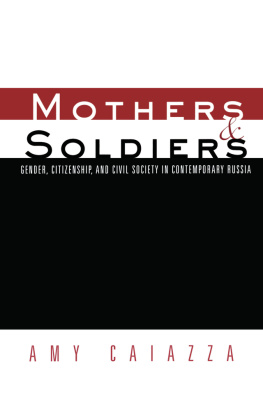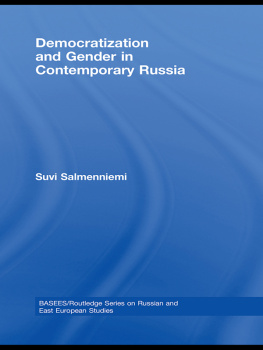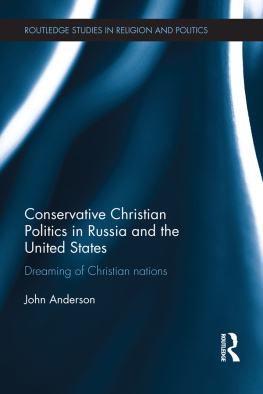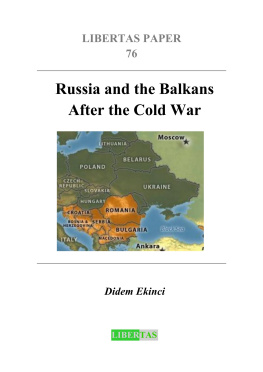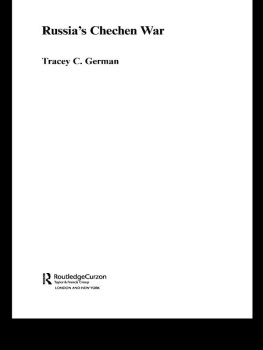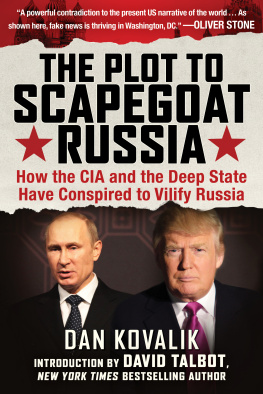MEN IN CONTEMPORARY RUSSIA
For my Dad
Men in Contemporary Russia
The Fallen Heroes of Post-Soviet Change?
REBECCA KAY
Department of Central and East European Studies University of Glasgow
First published 2006 by Ashgate Publishing
Published 2016 by Routledge
2 Park Square, Milton Park, Abingdon, Oxon OX14 4RN
711 Third Avenue, New York, NY 10017, USA
Routledge is an imprint of the Taylor & Francis Group, an informa business
Copyright 2006 Rebecca Kay
Rebecca Kay has asserted her right under the Copyright, Designs and Patents Act, 1988, to be identified as the author of this work.
All rights reserved. No part of this book may be reprinted or reproduced or utilised in any form or by any electronic, mechanical, or other means, now known or hereafter invented, including photocopying and recording, or in any information storage or retrieval system, without permission in writing from the publishers.
Notice:
Product or corporate names may be trademarks or registered trademarks, and are used only for identification and explanation without intent to infringe.
British Library Cataloguing in Publication Data
Kay, Rebecca, 1971-
Men in contemporary Russia : the fallen heroes of post-Soviet change?
1. Men - Russia (Federation) 2. Men - Russia (Federation) -Social conditions 3. Men - Health and hygiene - Russia (Federation) 4. Masculinity - Russia (Federation) 5. Sex role - Russia (Federation)
I. Title
305.3'2'0947
Library of Congress Cataloging-in-Publication Data
Kay, Rebecca, 1971-
Men in contemporary Russia : the fallen heroes of post-Soviet change? / by Rebecca Kay.
p. cm.
Includes bibliographical references and index.
ISBN 0-7546-4485-5 (alk. paper)
1. Men--Russia (Federation)--Social conditions. 2. Men--Russia (Federations)--Economic conditions. 3. Men--Russia (Federation)--Psychology. I. Title.
HQ1090.7.R8K39 2005
305.31'0941--dc22
2005021088
Transfered to Digital Printing in 2012
ISBN 9780754644859 (hbk)
Contents
I would like to thank the Leverhulme Trust for their generous financial support without which this project would not have been possible. I would also like to thank the University of Glasgow and especially Richard Berry, Head of the Department of Central and East European Studies, for support both financial and administrative which enabled me to extend the project and to devote the time and attention necessary for its completion. Other colleagues at the Department of Central and East European Studies, especially Moya Flynn, have offered much appreciated encouragement and support and have been willing to discuss early findings and contribute insights and ideas from their own research which have helped tremendously in the process of analysis and writing up.
In Russia, Tatiana Fediaeva offered technical assistance, hospitality and friendship which were greatly appreciated and made fieldwork both a more enjoyable and a more rewarding experience. Her support and assistance, especially in helping to set up expert interviews in Moscow and Kaluga Region and with establishing initial contact with the Altai Regional Crisis Centre for Men in Barnaul, were invaluable.
Maksim Kostenko and the staff at the Altai Regional Crisis Centre for Men, especially Natalya Zhabina, were exceedingly generous with their time and in their support for the project. Their enthusiasm for the research, their willingness to offer access to the Centres clients, premises and documentation, as well as sharing their own expertise and experience, were far greater than anybody had a right to expect. As a result of this close collaboration in Barnaul, Maksim Kostenko subsequently became involved in the ESRC seminar series, Transnational issues, local concerns: insights from Russia, Central and Eastern Europe and the UK. His contributions to this series were greatly appreciated and I look forward to our further collaboration and to many more fascinating discussions.
I would especially like to thank all the men who took part in this study, who were willing to give up their time and to share their thoughts and experiences, including in many cases on issues which had clearly been far from easy for them. A particular debt of gratitude is owed to those men and their families who became much more than simply respondents and repeatedly offered help, support and hospitality during fieldwork.
Finally, I would like to thank my friend and long-term research collaborator Sue Bridger. This project in many ways has built upon a foundation of research which we undertook, both separately and jointly, over the past twelve years. Our long discussions about this project have fed directly into the findings presented in this book. She has been extremely generous in providing access to data and material which she had gathered as a result of her previous research. Her support and assistance during the course of this project and the writing of this book have been invaluable.
Over the past two decades the tenor of reporting on all things Russian in the western media has undergone a series of profound shifts. In the mid-1980s, the old Cold War enemy, so recently vilified as the evil empire, began to be welcomed once more at the international table with the advent of Mikhail Gorbachevs reforming policies. As western journalists breathlessly reported the accelerating pace of change, east-west ventures began to spring up, western tourists appeared in number on the streets of the major cities and students suddenly wanted to learn the language of a place which had become accessible overnight.
But the euphoria which greeted the new post-socialist Russia in the early 1990s was not to last. The freezes and thaws which had so characterized east-west relations in the past have found their echo, once again, long after the spectre of communism has been consigned to history. As Russia has faced up to the very substantial problems left in the wake of a struggling planned economy, the western media have consistently focused on the wretched and the squalid, the hopeless and the incompetent. In popular discourse there is a prevailing sense that Russia is a disturbing, if not frightening, place to be, a country which is somehow incapable of pulling itself out of the hole it is in. At times, indeed, this extends almost to an element of schadenfreude at the sight of a formerly all-powerful enemy brought low.
Within this oddly shifting picture, an overwhelmingly negative portrayal of Russian men has become almost commonplace. It is as if the degeneration of a nation can best be typified by the image of the self-pitying drunk, defeated by circumstance, spiralling into an early grave. Whilst a quick glance at Russian health statistics confirms that there are very significant problems with male health and lifestyle choices, the purpose of this book is to explore a little more deeply what has been happening to men in Russia since the break-up of the Soviet Union and to investigate to what extent male behaviours are part of a broader picture of understandings of gender. Given that male life expectancy has fallen significantly, should it be concluded that Russian men en masse are unable to respond adequately to change? Or, conversely, is it possible to stand the proposition on its head and conclude that many Russian men, like their country, have faced immense challenges since the demise of the USSR but, in the circumstances, have performed miracles both of invention and survival?


